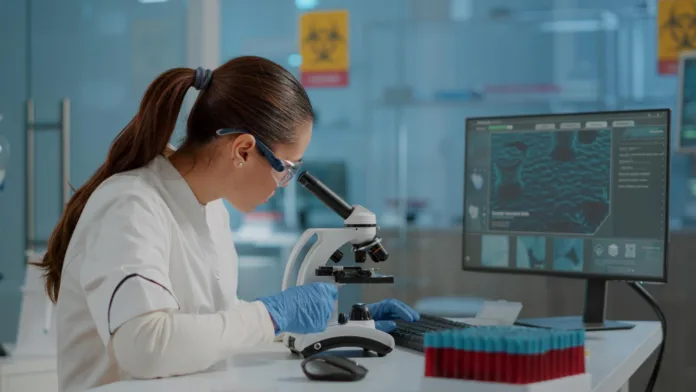Scientists decode a prehistoric crisis, shedding light on humanity’s fight for survival
A riveting discovery by an international team of scientists has unveiled a chilling chapter in human history—800,000 years ago, our ancestors faced the brink of extinction. In an extraordinary feat of genetic sleuthing, researchers from the US, Italy, and China have uncovered the details of a nearly catastrophic event that left only 1,280 breeding humans in what is now known as an ‘ancestral bottleneck.’
Published in Science, the research highlights a staggering 98.7 percent loss in human ancestors during this pivotal period, triggering a chronological gap in the fossil records of Africa and Eurasia between 950,000 and 650,000 years ago.
Haipeng Li, co-lead of the study and a population geneticist at the University of Chinese Academy of Sciences in Beijing, states, “About 98.7 percent of human ancestors were lost.” This bottleneck, lasting 117,000 years, resulted from the Early-Middle Pleistocene transition, marked by longer and more intense glacial cycles. Africa faced extended periods of drought, leading to diminished food sources and the extinction of various animals.
Embed from Getty ImagesThe study estimates that approximately 65.85 percent of genetic diversity was lost during this critical bottleneck, posing a significant threat to human survival as breeding opportunities dwindled.
Around 813,000 years ago, a remarkable turnaround occurred as the pre-human population surged. However, the reasons behind this resurgence remain shrouded in mystery. Ziqian Hao, a population geneticist, suggests that the population crash likely influenced human genetic diversity, potentially contributing to the evolution of key features, such as brain size.
As the scientific community grapples with the implications of this newfound knowledge, Li Haipeng from the Shanghai Institute of Nutrition and Health emphasizes, “These findings are just the start.” The quest for a comprehensive understanding of human evolution during the Early to Middle Pleistocene transition continues, promising to unveil more secrets about our early ancestry and evolution.
